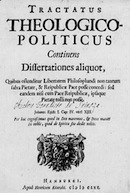
Source: Theologico-Political Treatise- Chapter V - of the ceremonial law
Spinoza's Chapter 5 – conclusion (Page 6)

The masses need pastors or church ministers to explain to them the meaning or conclusions of the Biblical stories. but the tnarratives have nothing to do with the Divine law. Some of the narratives in both the Old and New Testaments are historical in nature and have nothing to do with doctrine.
The Jews hold that reason alone cannot provide blessedness. Spinoza quotes Maimonides who said that he who has the laws of Moses in his heart and follows them is truly pious. And that Aristotle, whose writing on ethics is deemed the best, nevertheless is considered deficient because he used reason only and did not embrace doctrines that were prophetically revealed.
Spinoza concludes the book by saying it is not his intention here to refute the idea that reason if insufficent for ethics. But people who lay no claim to reason for themselves are not able to prove by reason the idea that there is something superior to reason. He suggests that we can only judge of a man by his works. If a man abounds in the fruits of the Spirit , charity, joy, peace, long-suffering, kindness, goodness, faith, gentleness, chastity, whether he be taught by reason only or by the Scripture only, has been in very truth taught by (Deus sive Natura) , and is altogether blessed. Thus have I said all that I undertook to say concerning Divine law